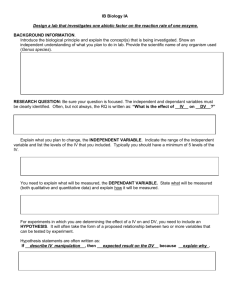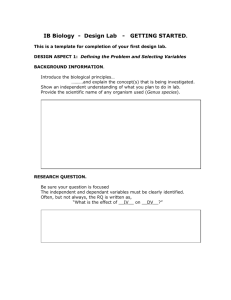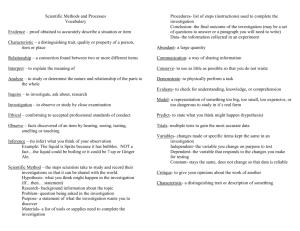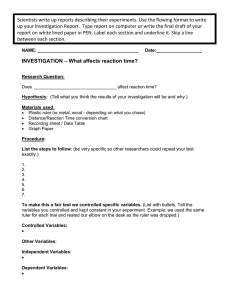Intro notes
advertisement
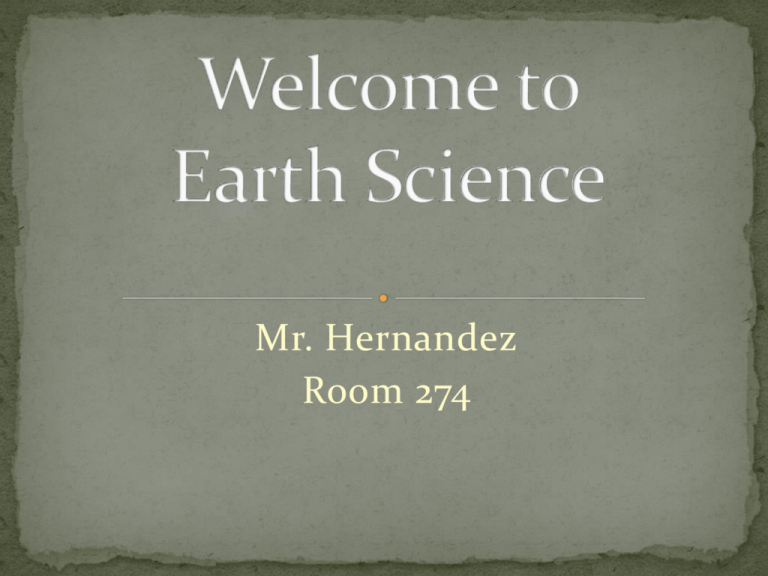
Mr. Hernandez Room 274 Needed everyday Binder 1” or 2” 1” good for one semester 2” good for whole year Pencil and a Pen Pencil # 2 Pen must be Blue or Black ink! GPS Planner Use it! Composition Book Lab write ups Earth Science book I will let you know when it is needed (keep in locker) all-encompassing term that refers to the fields of science dealing with planet Earth. What is Earth Science? Earth Science: The study of the Earth and of the universe around it. Examples: ◦ Earthquakes ◦ Volcanoes Geology Oceanography Meteorology Astronomy Study of the origin, history, and structure of the solid earth and the processes that shape it. The study of Earth’s oceans The study of Earth’s Atmosphere The study of the universe outside of Earth Describe TWO reasons that make Earth Science important to study. Scientific Method ? Scientific Method Organized, logical approach for doing scientific research. Scientific investigation 5 major components Scientific investigation Question/purpose Hypothesize Materials Procedure Observations Scientific investigation Question/purpose Simple statement of what is being tested. Scientific investigation Hypothesis=educated guess One possible solution to the question that is clearly testable. Scientific investigation Materials needed: What you need to test your hypothesis Scientific investigation Procedure: Set of steps that you follow when testing your hypothesis. Scientific investigation Observations: See Hear Touch Smell Taste Because it is easy! • Organized • Clear People like kittens more than sharks! Kittens Puppies Easy to read Independent variable: • • What you control! or observe Dependent variable: • What changes as result of what you controlled Graphs Powers of 10 Easy Standard for most of the world (always in Science) ◦ Gotta luv it! k h da d c m A derived unit is a SI unit of measurement comprised by multiplication or division between 2 or more base units. Force = M* A (kg*m/s2) or Density= M/V (g/mL) Ex. Place in a known quantity of water (100mL,200mL… whatever) Difference between initial and final volumes is the volume of unknown Take the mass and divide it by the unknowns volume. Density= M/V (g/mL)



